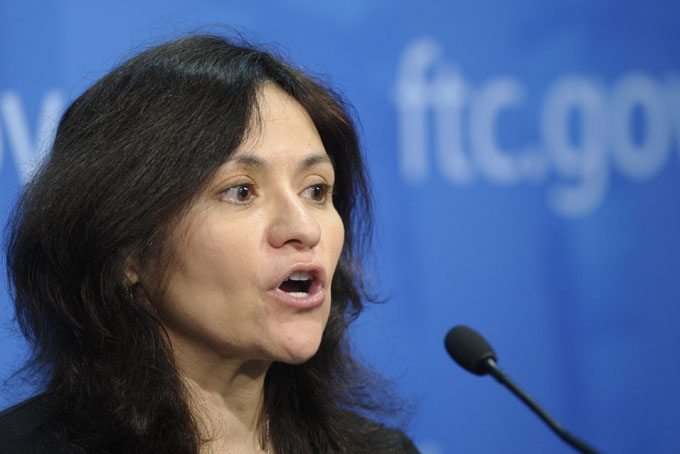
WASHINGTON (AP) — T-Mobile US knowingly made hundreds of millions of dollars off its customers in potentially bogus charges, federal regulators alleged Tuesday in the first lawsuit of its kind against a wireless provider.
The lawsuit by the Federal Trade Commission, which fueled a separate federal investigation, demands that T-Mobile refund the money to consumers for subscriptions to premium text services such as $10-per-month horoscopes that were never authorized by the account holder. The FTC alleges that T-Mobile collected as much as 40 percent of the charges, even after being alerted by other customers that the subscriptions were scams.
The announcement was a blow to the popular mobile phone provider, which had been making gains in the market by offering consumers flexible phone plans.
“It’s wrong for a company like T-Mobile to profit from scams against its customers when there were clear warning signs the charges it was imposing were fraudulent,” said FTC Chair Edith Ramirez in a statement. “The FTC’s goal is to ensure that T-Mobile repays all its customers for these crammed charges.”
In a statement, T-Mobile called the allegations “unfounded and without merit.”
“T-Mobile is fighting harder than any of the carriers to change the way the wireless industry operates, and we are disappointed that the FTC has chosen to file this action against the most pro-consumer company in the industry rather than the real bad actors,” said John Legere, the company’s CEO, in a statement.
The practice is often referred to as “cramming”: businesses stuff a customer’s bill with bogus charges associated with a third party. In this case, the FTC said, most T-Mobile customers never agreed to sign up for the services but were billed anyway.
T-Mobile says it tried to put consumer protections in place, but that many of the third-party vendors acted irresponsibly. The FTC counters that T-Mobile should have been tipped off that these text services were scams because of the high rate of customer complaints.
The FTC also alleges that T-Mobile often hid the charges, making it almost impossible for customers to protest. Regulators estimate that T-Mobile kept as much as 40 percent of the bogus charges, resulting in hundreds of millions of dollars.
The FTC told reporters in a conference call Tuesday that it had been in negotiations with T-Mobile for months in an attempt to guarantee refunds would be provided to customers but that the two sides couldn’t reach an agreement.
The Federal Communications Commission announced it would launch a separate investigation, which could result in heavy fines for T-Mobile if it confirms the FTC’s allegations.
T-Mobile appears to have been laying the groundwork to head off the federal complaint. Last November, the company announced it would no longer allow premium text services because they were waning in popularity and that not all vendors had acted responsibly. In June, with the FTC complaint imminent, T-Mobile announced it would reach out to customers and give them a chance to request a refund.
The FTC said consumers should contact their wireless provider if they fear they are a victim of cramming. They also can file a complaint with the FTC.
One way for consumers to try to prevent fraudulent charges is to ask their providers to block all third-party businesses from providing services on their phones.
Headquartered in Bellevue, Washington, T-Mobile US, Inc., is a publicly traded company. According to its website, Deutsche Telekom AG maintains a 67 percent ownership in the company’s common stock.
Sprint Corp., the third-largest cellphone carrier, is in talks to buy T-Mobile US Inc., according to published reports. Analysts believe such a link-up would face stiff opposition from the same regulators who blocked AT&T from buying T-Mobile in 2011.
T-Mobile’s stock fell 21 cents to close Tuesday at $33.41.
___
Associated Press writer Anick Jesdanun contributed to this report.
___
Follow Anne Flaherty on Twitter: https://twitter.com/AnneKFlaherty